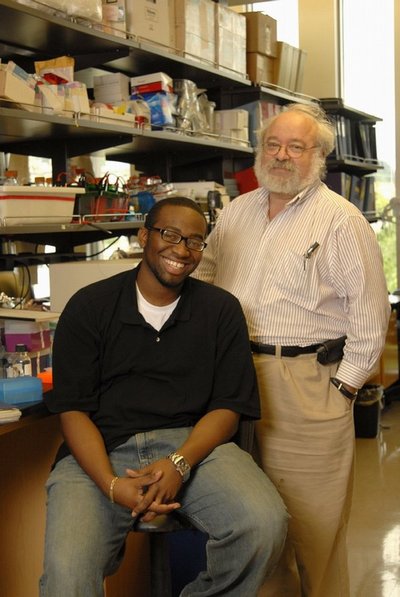The Stipends for Training Aspiring Researchers (STAR) Program recently received a five-year grant renewal from the National Institutes of Health’s National Heart, Lung and Blood Institute.
Now in its 17th year, the STAR Program is a collaboration between the UW School of Medicine’s Department of Pediatrics and the Office of Minority Affairs and Diversity (OMA&D). Its mission is to increase the number of underrepresented students doing research in cardiology, pulmonary medicine, hematology and sleep. The STAR principal investigator is Dr. Michael Portman, a UW professor of pediatrics in the Division of Cardiology, while Karlotta J. Rosebaugh, director of OMA&D Health Sciences Center Minority Students Program, is the STAR summer program coordinator.
From 2010-2015, STAR will provide at least 20 paid student internships each summer. Participants will have the opportunity to work with biomedical/biobehavioral projects in the laboratories of preeminent UW heart, lung, blood and sleep-related researchers. The program includes a weekly salary, summer housing allowance and round-trip airfare to and from the program location.
“The STAR Program has literally helped hundreds of underrepresented minority, economically and educationally disadvantaged and disabled students learn the skills needed to participate in, and experience the excitement of, biomedical and biobehavioral scientific research,” Dr. Portman said. “It has been my privilege, as the STAR Program PI, to work with and meet so many outstanding, research-track students and dedicated faculty. I look forward to the next five years.”
More than 50 STAR alumni have completed professional or graduate degrees and 41 alumni are currently in school, with 14 seeking doctorates. Four STAR alumni are teaching or conducting research at major U.S. colleges or universities and one student is teaching in England after receiving a doctorate from Cambridge. Among other outstanding alumni is a consulting physician on the Reverend Al Sharpton Radio Show. For good measure, STAR alumni were co-authors on 76 articles in peer reviewed, scientific journals over the last four years.
The STAR program and student success continues to be dependent on collaboration with UW research faculty. With no cost to the mentor, excluding project material, the program continually seeks to identify faculty willing to host students during the 10-week, 400-contact hours summer session.
“Each STAR Program alum was mentored, for one to three summers, by UW research faculty, nationally-recognized as leaders in their respective fields,” Portman said. “Participation with these exceptional mentors has been the tipping point, for many of our alumni, in selecting the UW to pursue biomedical and biobehavioral graduate degrees.”
The program is open to junior and senior level undergraduates and entering graduate students pursuing a master’s/doctorate in the biomedical/biobehavioral sciences. Students are recruited both locally and nationally. Criteria for eligibility require all participants to be a U.S. citizen or permanent resident and a member of a group underrepresented in the biomedical/biobehavioral science fields. Additionally, undergraduates must have a 3.0 or greater grade point average and entering graduates must be nominated by their department.
For more information regarding the application process or mentoring, contact Karlotta J. Rosebaugh at karlotta@uw.edu or 206-221-6151.
